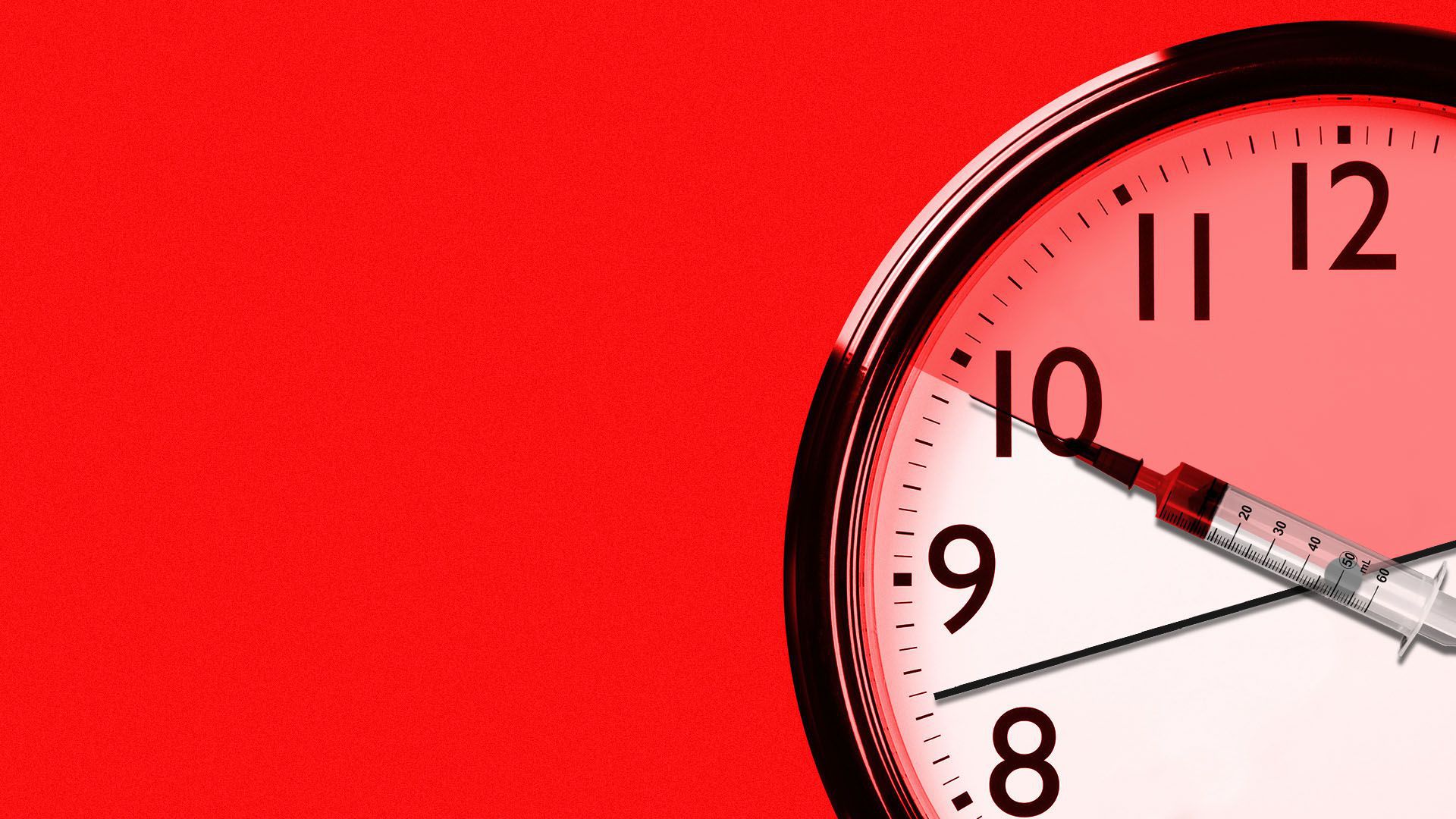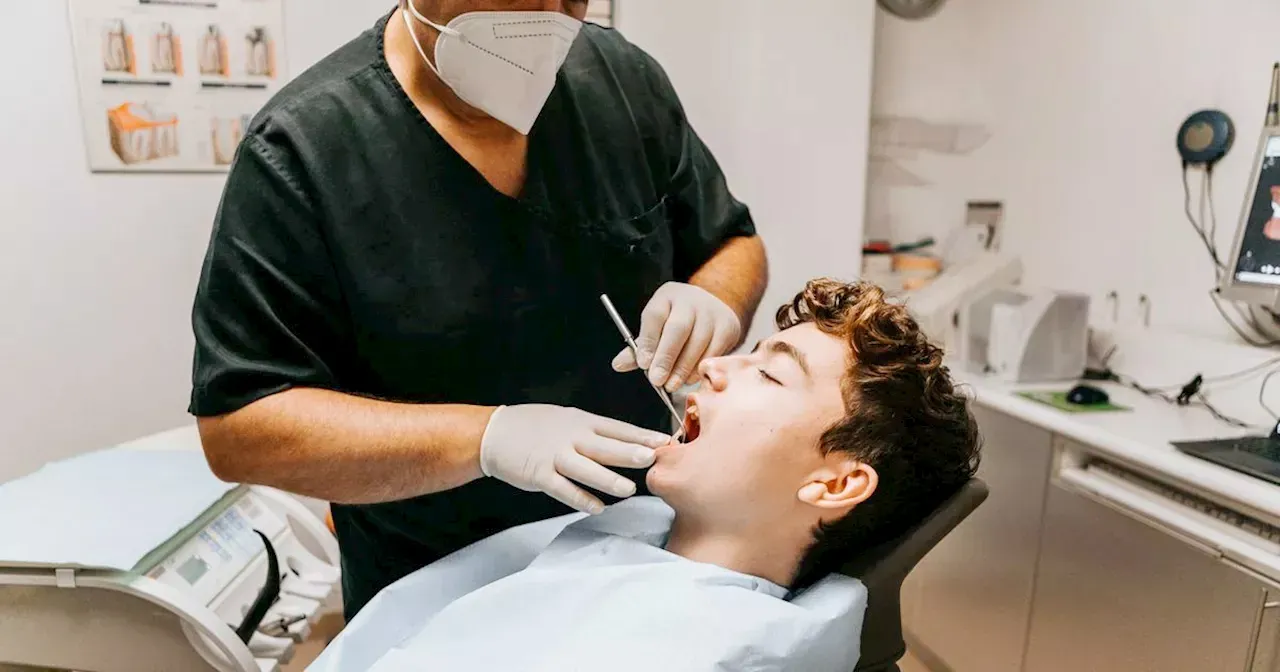Shutdowns have been necessary to “flatten the curve” of the coronavirus pandemic and lessen the impact on our health care system, but these steps may also be leading to worrisome delays in key health checkups and procedures worldwide.
Why it matters: An interruption of vaccination campaigns, dental checkups, and preventative cancer screenings, plus stories of people being afraid to go to the hospital for emergencies, have led to concerns about growing issues down the road, experts tell Axios.
What’s happening: The medical establishments advised the temporary halt of preventative and elective procedures to lower the trajectory of COVID-19 infections and allow physicians to focus on the ill — but pieces of data and anecdotal evidence are starting to show what longer term problems this may pose for society.
- “We’re definitely seeing both direct and indirect evidence that essential health services for conditions other than COVID-19 are definitely suffering during the pandemic,” Julie Fischer, professor of microbiology and immunology at Georgetown University, tells Axios.
- “We’re seeing delays for two reasons. The first is that there’s been a lot of informal reports that people are worried about being exposed to COVID-19. They are themselves deciding not to go seek treatment or preventive care. And then in other places, clinics and practices have been closed to non-essential health services,” Fischer says.
- And, as the New York Times writes, it’s often those “gray zone[s] of medical risk” that pose problems.
1. Vaccine campaigns have been disrupted globally — which could lead to an explosion of other infectious diseases like measles and polio once people start moving around again, Fischer says.
- Routine vaccinations in the U.S. appear to have dropped dramatically in March and April, per a CDC report out Friday that found there was a “notable decrease” in vaccines ordered through a key federal program.
- Globally, “we’ve already got delays of 13 introductions and 35 campaigns, and these are vaccines like typhoid and rotavirus. … Polio campaigns have been stopped. Measles and rubella have been stopped. You need to keep in mind that in the [Democratic Republic of Congo], two and a half times as many people died of measles ultimately than died of Ebola,” Seth Berkley, CEO of the nonprofit Gavi, the vaccine alliance, said at an April 30 press conference.
- In an effort to stay on top of important vaccinations, doctors are implementing new safety protocols, like meeting patients outside to give them a vaccination in their car, Fischer says.
2. Dental checkups postponed. The CDC and the American Dental Association recommended that dentists close for non-urgent visits, but this has led to an increase of people waiting too long for issues that can worsen quickly, says Kami Hoss, CEO of the Super Dentists, one of the largest dental groups in Southern California.
- “Just in the last six or seven weeks that we’ve been closed, the number of emergencies and the severity of them have increased dramatically,” Dr. Hoss tells Axios.
“When you have infection in the mouth it can be very dangerous and it can transfer to any other part of the body,” he says. - During the hiatus, some dentists have prepared for reopening by adding “a significant number of new protocols” to what were already strict universal precautions, as dentists are used to dealing with pathogen risk, he adds. But, some are reporting difficulty implementing the new rules as they begin to reopen.
- The ADA has a map showing reopening status by state.
3. Avoiding the ER despite need. Anecdotal evidence points to many Americans refusing to go to the emergency room for serious emergencies like appendicitis and heart attacks and strokes.
- “There are a lot of anecdotal reports that people are afraid to go to hospitals for emergencies. I think that’s it’s going to be difficult to assess what the total impact is until the pandemic starts to ease up enough that we get good data,” Fischer says.
4. Preventive care and cancer screenings dropped. While cancer patients should continue their treatment regime, the temporary halt in screenings isn’t likely a huge concern yet, according to Fischer.
- Telemedicine is helping doctors maintain contact with patients and can let that person know when it’s important to see a doctor in person.
- However, data from the Epic Health Research Center indicates a large drop of 86%-94% in March in the number of screenings for cervical cancer, colon cancer, and breast cancer — all of which typically demonstrate better rates of survival when caught early.
What’s next: As shutdowns gradually loosen in some areas, doctors are expected to start opening their doors for preventive care with new protocols in place.
- Fischer says to expect new rules concerning social distancing and sanitation, stricter preliminary checks on the health of anyone entering offices, and a large backlog of needed appointments for offices that are likely to stagger them more carefully.
Here is the link to the original article from the Axios.









